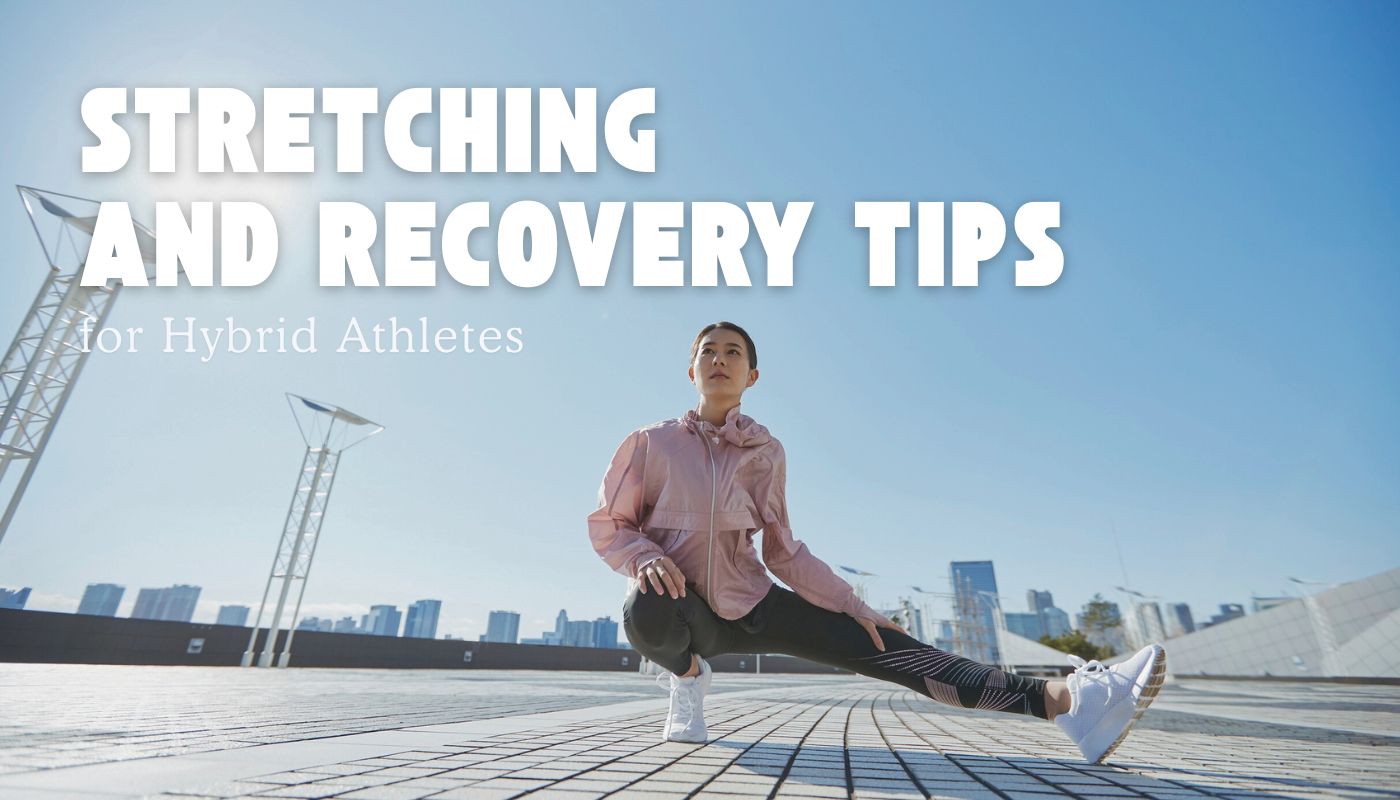Stretching and recovery are often overlooked parts of training. Many people skip cooldowns or don’t take rest seriously and end up missing one of the most important pieces of the puzzle. Recovery isn’t just about feeling better; it’s what allows your body to grow stronger and perform at its best.
So here are a few simple tips to help you recover smarter after your workouts.👇
Why Recovery Matters
Recovery is such an important part of your training. Recovery is when your body does the real work, repairs muscles, restores energy, and gets stronger. During training, you break down muscle tissue and deplete energy stores. It’s only during rest that your body rebuilds and adapts to become more resilient. Skipping proper recovery can lead to fatigue, overtraining, or injury. That’s why rest isn’t a break from training—it’s a crucial part of it.
Sleep
Sleep is the most powerful recovery tool you have. It’s the time when your body repairs muscle tissue, consolidates memories, and releases key hormones that support growth and reduce stress. While most people know they should aim for 7–9 hours a night, it’s not just about how long you sleep, but how well you sleep.😴
Creating a relaxing night-time routine can really improve sleep quality. Try to avoid screens at least an hour before bed and focus on calming activities like stretching, reading, or journaling. These habits help your body and mind wind down, so you wake up feeling refreshed and ready to go.
Nutrition
In my last blog, I talked about how important it is to fuel your body right. Post-workout nutrition plays a big role in how well your body recovers and adapts to training. After a workout, it’s important to eat a mix of carbs to refill your energy and protein to help repair and rebuild your muscles.
I usually aim to eat within 30 to 90 minutes after training. If I’m in a rush, I’ll grab something quick like a protein shake with a banana, Greek yogurt with müsli, or toast with peanut butter. For a full meal, I go for something like grilled chicken with rice and veggies or eggs with toast with cheese on top. I try to avoid heavy, high-fat meals right after training since they can slow down digestion. And of course, staying hydrated is just as important—water or a simple electrolyte drink can go a long way in helping your body bounce back.
Mobility and Stretching
Another great way to support recovery is by gently stretching your muscles or doing some mobility exercises. These simple movements help improve blood flow, reduce stiffness, and speed up the recovery process. Stretching and mobility work also increase your range of motion and help prevent injuries in the long run, which is especially important if you’re training regularly.
VIDEO-> 3-minute stretching routine you can do before a run! ✨
Rest Days & Active Recovery
Rest can take many forms; it doesn’t always mean doing nothing. Sometimes it’s full rest, like relaxing at home with a good book or your favourite show. Other times, you might choose active recovery, which means doing light movement on your rest days, like a walk in nature, easy cycling, or gentle swimming. This kind of recovery can help reduce muscle soreness and keep your body feeling fresh for your next workout.
Mental Recovery
Don’t forget about mental recovery because training doesn’t just challenge your body, but your mind too. While workouts can bring joy, adrenaline, and a sense of achievement, they can also create pressure, especially when you’re constantly pushing yourself to improve. That’s why it’s important to check in with your mental well-being. Practices like mindfulness, journaling, or meditation can help reduce stress, improve focus, and build mental resilience.🍃
Take care of your mind just as much as your body.
Final Thoughts on Recovery
Recovery isn’t just something you do after training, it’s part of the training itself. Whether it’s sleeping better, eating right, moving gently, or slowing down your thoughts, every small recovery habit adds up. As a hybrid athlete, your body and mind are always working hard, so give them the care they deserve. Your performance will thank you. 🙂
What’s your favorite way to recover after a tough workout? Let me know in the comments!
Follow my content on social media: Instagram, TikTok, YouTube
Catch up on my last posts:
My Version of Hybrid Training: How to Balance Strength, Endurance, and Fun!
The Benefits of Hybrid Training for Women
How to Build Your Perfect Hybrid Training Split
My Weekly Hybrid Routine: What It Looks Like (and Why It’s Always Changing)
Nutrition Tips for Hybrid Athletes
♥ Next up: My Hybrid Athlete Journey!
“Images by Canva Pro”


